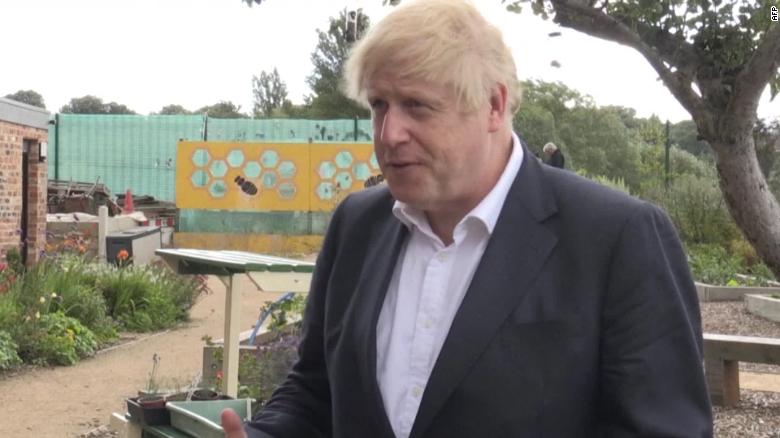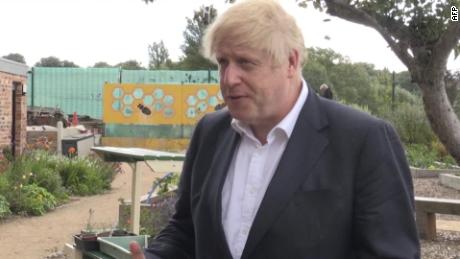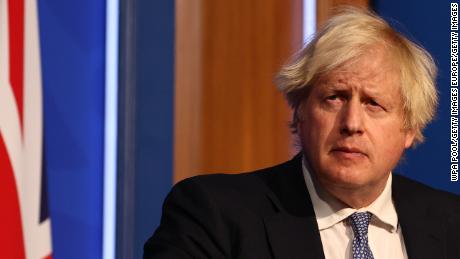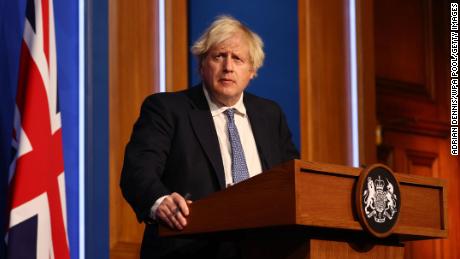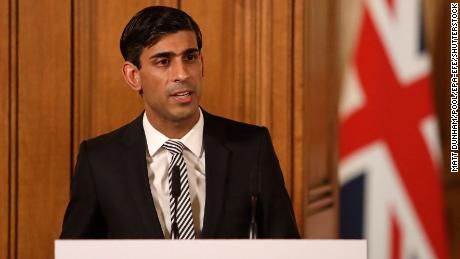London (CNN Business)The UK economy will take longer than expected to recover from the coronavirus pandemic, the Bank of England said Thursday, as it warned of rising unemployment and other risks to its forecast, such as a second wave of infections and Brexit.
The central bank said in a statement that UK GDP is projected to shrink by 9.5% this year, its worst slump in 99 years. That is less severe than the 14% slump it predicted in May, which would have been the worst crash in 300 years. But it also warned of a slower recovery.
"We have an unusually large downside skew on the forecast, which reflects the risks as we see them," Bank of England governor Andrew Bailey told reporters on a call Thursday.
While economic activity has picked up since a trough in April, the bank now expects the pace of recovery to slow through the end of the year. And its forecast assumes a post-Brexit comprehensive trade deal with the European Union from January 2021. "We're not taking a strong signal from the recovery in terms of what happens next," Bailey added.
UK GDP is now not expected to exceed the level it reached in the final quarter of 2019 before the end of 2021. In May, the central bank had forecast a recovery during the second half of next year. It now predicts GDP growth of 9% next year.
"The outlook for the UK and global economies remains unusually uncertain," the bank said in a statement. "It will depend critically on the evolution of the pandemic, measures taken to protect public health, and how governments, households and businesses respond to these factors."
The Bank of England has provided unprecedented support as the UK battles a historic recession, slashing its main interest rate to a record low of 0.1% in March. Its bond buying program has swelled to ┬Ż745 billion ($979 billion) and economists widely expect another ┬Ż100 billion ($131.4 billion) of quantitative easing in November.
"The BoE's overly optimistic updated economic projections leave the door wide open for more monetary stimulus later this year," Berenberg senior economist Kallum Pickering said in a research note on Thursday. "The V-shaped recovery that the BoE continues to project seems unlikely, to put it mildly," he added.
Growing jobs crisis
The coronavirus pandemic has pushed Britain into a deep economic slump and sparked a growing unemployment crisis. Major UK companies, including British Airways and BP (BP), have culled more than 100,000 jobs. At least 4,500 additional layoffs have been unveiled this week alone and many more are expected when the government's furlough program comes to an end in October.
The Bank of England said on Thursday that it expects unemployment to rise to 7.5% by the end of the year, nearly double the rate in March.
"Over the next six months, the [bank] is likely to place more weight on incoming news from the labor market than incoming news on the level of output," economists at Goldman Sachs said in a note to clients Monday.
Brexit is only deepening the United Kingdom's economic woes. Even if Britain manages to secure a deal with its biggest trading partner, UK companies will face billions in extra costs of doing business with the European Union.
The bevy of new trade deals promised by Boris Johnson's government have yet to materialize. New agreements worth just 8% of total UK trade have been nailed down so far, including those with Switzerland, Iceland, Norway and South Korea, according to the Department for International Trade. Talks to replicate the EU-Japan trade deal for the United Kingdom resumed on Thursday.
The prospect of another wave of coronavirus infections also looms. New outbreaks are forcing fresh restrictions in cities like Manchester and Scotland's Aberdeen.
Unemployment in the United Kingdom could soar to nearly 15% in the fourth quarter if there is a widespread resurgence of the virus, according to a June report by Organization for Economic Cooperation and Development.
ŌĆö Eoin McSweeney and Julia Horowitz contributed reporting.
